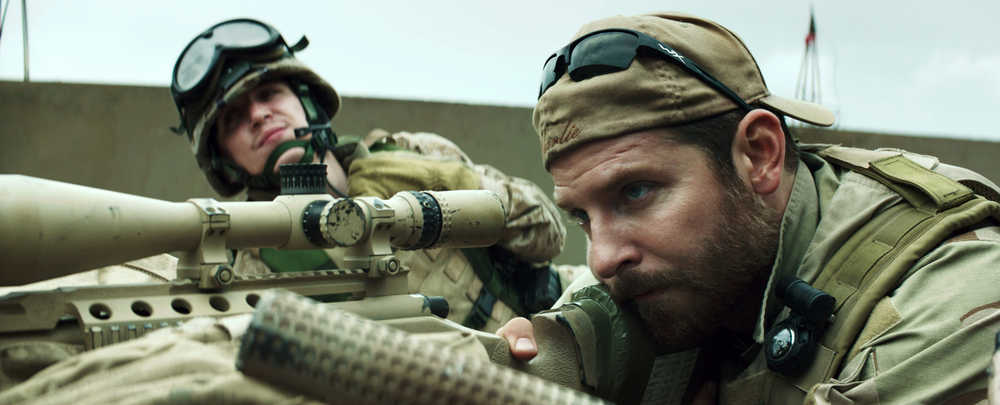“American Sniper”
Warner Bros.
2 hours, 22 minutes
Clint Eastwood has certainly paid his dues as a director. He’s had hits and he’s had misses, but rarely has he had a film like “American Sniper,” highly anticipated before it came out, widely panned by the critics upon release, and then unexpectedly lauded by both audiences and the Oscars (it garnered six nominations including Best Picture and Best Actor, though Eastwood was shut out of the director’s race.)
The reaction to the film isn’t exactly surprising. “American Sniper” is a frustrating film, not because of its complexity, but for its straightforward — some would even say simplistic — point of view. Frustrating, however, doesn’t equate to bad. “Sniper” is expertly crafted and packs a real emotional punch, no matter your politics.
Chris Kyle is a simple Texas boy — loves his mama, calls his daddy sir, loves to rodeo and chase cowgirls, and is, above all, a proud American. This is about as deep as the movie goes into the character’s emotional background, but those who are looking for a deeper — read: more critical — portrait of the man who would eventually become the most lethal sniper in U.S. military history should look elsewhere. “American Sniper” is based on Kyle’s autobiography, coming from the point of view of a man who remained proud of himself and his country ‘til the day he died. We’re more used to modern war films coming from a critical perspective — one that decries the horrors of war and the shortsightedness of the people in charge. Eastwood never shies from the horrors, but his hero, and his film, never seriously question the mission.
The film takes us briefly into Kyle’s childhood, but spends most of its time in the last decade or so of his life, through SEAL training and four tours in Iraq, a wife and two kids, and a difficult re-entry into society made better by an opportunity to help wounded veterans. While the tale ostensibly sticks with Kyle’s amiably macho perspective, Eastwood fleshes the story out in between the lines — other soldiers struggling with what they’ve been through, the very real cost to innocent civilians in Iraq, the difficulties in balancing a relationship and a family while serving multiple tours abroad.
Bradley Cooper, long a champion of getting this story told, does an excellent job as Chris Kyle, dialing back his trademark snark and keeping it sincere. Cooper is able to convey a lot with quiet unease. One of the film’s best scenes has a wounded vet approaching Kyle, back home with his young son, to thank him for saving his life in Iraq. Kyle’s inability to face the problems he’s experiencing manifest in an extreme aversion to hearing what the man, a recent amputee, has to say. There’s nothing overt in the scene, but the fear and panic in our hero’s eyes speak volumes. There are critics I’ve read who suggest that the film does nothing but venerate Kyle, but Cooper and Eastwood bring a lot of small, subtle touches to humanize him.
My main complaint about the film is that it does not go further in exploring the real costs and dangers of PTSD. Again, I realize this is based on an autobiography and that Chris Kyle does not appear to have felt he suffered from the disorder, despite what is shown in Bradley Cooper’s performance. The horrible irony of Kyle’s death, murdered by a disturbed veteran he was attempting to counsel, should serve to shine a spotlight on this debilitating condition, but here is presented as a sad footnote.
I was very impressed with “American Sniper,” and even enjoyed it at times. Eastwood is a masterful director and Bradley Cooper gives a laudable performance. Despite a few minor issues, the film is a fitting testament to the life of a true hero.
I cannot, however, recommend this film without reservation. The horrors of war are what they are, and nothing Clint puts up on the big screen can match the grotesquery that men visit upon each other. That said, this film includes a scene of the torture and murder of a child that I very much wish I could unsee. The scene was disturbing enough for me that I can’t really tell if it was over the top or appropriate, but if you decide to see this mostly excellent film, be forewarned.
Grade: A-
“American Sniper” is rated R for gruesome war violence and pervasive language.
Chris Jenness is a freelance graphic designer, artist and movie buff who lives in Nikiski.

